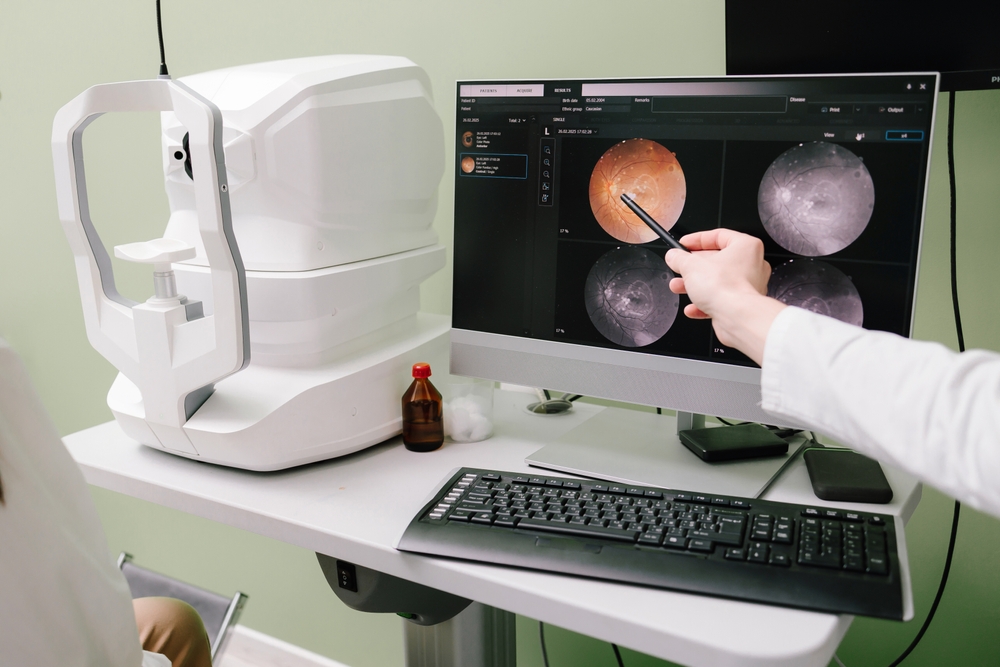
Macular degeneration, also known as age-related macular degeneration (AMD), is one of the leading causes of vision loss in adults over 50. It affects the macula - the small central portion of the retina responsible for sharp, detailed vision. Over time, damage to the macula can make it difficult to read, drive, or recognize faces. AMD progresses gradually, and understanding its stages is key to catching the condition early.
Stage 1: Early Macular Degeneration
In the early stage, there may be no noticeable symptoms, but subtle changes can already be seen during an eye exam. Small deposits of drusen (tiny yellow protein deposits) may form under the retina, and these can indicate early AMD.
Even though vision may still be normal, identifying early signs allows your optometrist to monitor changes closely and recommend lifestyle adjustments, such as improving diet, avoiding smoking, and protecting your eyes from UV light - all of which can help slow progression.
Stage 2: Intermediate Macular Degeneration
At this stage, drusen become larger and more numerous. Some people might begin to notice mild blurriness or difficulty seeing in low light. Vision changes may still be subtle, but the disease is advancing.
Regular eye exams become especially important. Your optometrist may recommend specific nutritional supplements, based on AREDS (Age-Related Eye Disease Study) findings, which can help reduce the risk of further vision loss.
Stage 3: Late Macular Degeneration
Late AMD is divided into two forms:
• Dry (atrophic) AMD: The cells of the macula gradually break down, leading to blank or blurry spots in central vision.
• Wet (neovascular) AMD: New, abnormal blood vessels grow beneath the retina, leaking fluid or blood, causing rapid and severe vision loss if untreated.
While there’s no cure, wet AMD can be managed with medications that stop abnormal vessel growth, while dry AMD progression can be slowed through consistent care, lifestyle changes, and proper monitoring.
The Importance of Routine Eye Exams
Macular degeneration often progresses silently until vision loss occurs. That’s why routine eye exams are vital - even if you don’t notice any changes. Annual exams allow your optometrist to detect AMD early, track its progression, and protect your vision with proactive care.
Who should schedule more frequent visits:
• Adults over age 50
• Individuals with a family history of AMD
• Smokers or those with high blood pressure or cholesterol
• People who notice sudden vision distortion, blurriness, or dark spots in their central vision
If you fall into any of these categories, your doctor may recommend more frequent visits.
Protect Your Sight at Vision Solutions
Understanding the stages of macular degeneration and committing to regular eye exams can make all the difference in preserving your sight. Early detection and consistent monitoring are your best defense against vision loss.
Schedule your next eye exam with Vision Solutions to safeguard your eye health and stay ahead of AMD. Contact our office in Lamar (417) 682-3301, Nevada (417) 667-2560 or Webb City (417) 250-2828. Call a location near you to book an appointment today.










